ElectronicFrontierFoundation
Latest
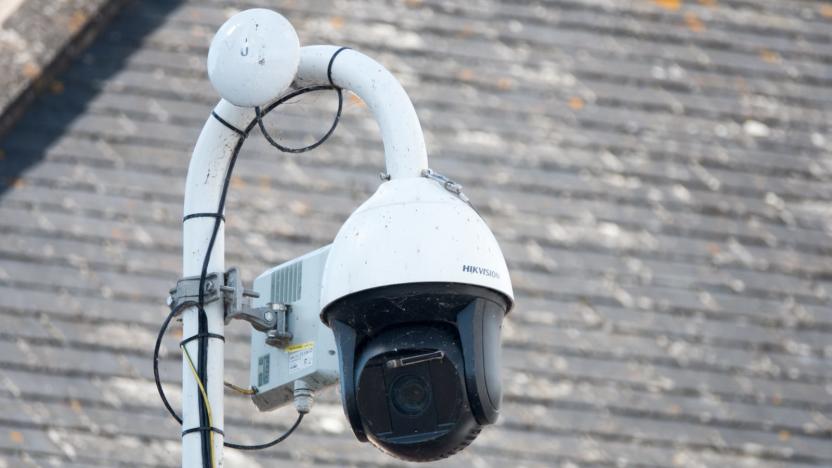
The EFF’s VR experience helps users spot surveillance devices
With surveillance technology becoming ever more ubiquitous, it would be useful to know where to look for it. At least that's the thinking behind the Electronic Frontier Foundation's Spot the Surveillance VR experience. It puts users in a virtual neighborhood as a young resident navigates an encounter with police, and it challenges users to spot all of the various surveillance technology that surrounds them. That includes devices like body cameras, automated license plate readers, drones and biometric devices.

EFF and human rights groups sue to have FOSTA declared unconstitutional
The Electronic Frontier Foundation (EFF) and a number of other organizations and individuals have filed a lawsuit asking for FOSTA to be declared unconstitutional, with the EFF saying the law was "written so poorly that it actually criminalizes a substantial amount of protected speech." They're also pursuing an injunction that would prevent FOSTA from being enforced while a court considers the case. FOSTA was signed into law in April and though it claims to be an effort to stop sex trafficking, the flawed legislation features broad language, conflates sex trafficking and sex work and by many accounts, actually makes fighting sex trafficking more difficult. Among those speaking out against FOSTA and its sister bill SESTA were the ACLU, the Department of Justice, sex work rights organizations and sex trafficking victims groups.

The EFF wants to make email servers more secure
The Electronic Frontier Foundation (EFF) launched HTTPS-encryption initiative Let's Encrypt two years ago with Mozilla and Cisco. Now it's turning its attention to email servers with a new project called STARTTLS Everywhere, which aims to help server admins run STARTTLS emails servers properly. Because according to the EFF, most aren't.

The EFF wants you to know why Facebook removed your post
The Electronic Frontier Foundation (EFF) wants more transparency from social media sites when it comes to takedowns. Much like reports companies issue for government requests, the EFF would like to see Facebook, Google and other platforms issue quarterly reports of how many user posts are removed. The organization would also like to see detailed explanations about said takedowns and for an appeals policy to be implemented "to boost accountability," it writes.

Activist and EFF co-founder John Perry Barlow has died
John Perry Barlow, a founder of the Electronic Frontier Foundation, died in his sleep this morning at the age of 71. EFF executive director Cindy Cohn shared the news in a blog post.

Lebanese hackers stole a ton of data then left it on an open server
The Electronic Frontier Foundation and mobile security company Lookout released a report today detailing a major hacking campaign -- dubbed Dark Caracal -- that's believed to have originated from Lebanon's General Directorate of General Security (GDGS), one of the country's intelligence agencies. The companies found information gathered from thousands of victims from over 20 countries through espionage efforts extending back to 2012. Targets included military personnel, journalists, activists, financial institutions and manufacturing companies and some of the stolen data included documents, call records, texts, contact information and photos. Michael Flossman, a Lookout security researcher, told the Associated Press, "It was everything. Literally everything."

Netflix, Google and others voice frustration with net neutrality vote
Today, with a three to two vote, the FCC voted to repeal net neutrality protections put in place in 2015. While Commissioners Clyburn and Rosenworcel made it very clear how much they disagreed with the move in their dissents, others are also voicing their concerns over the decision.
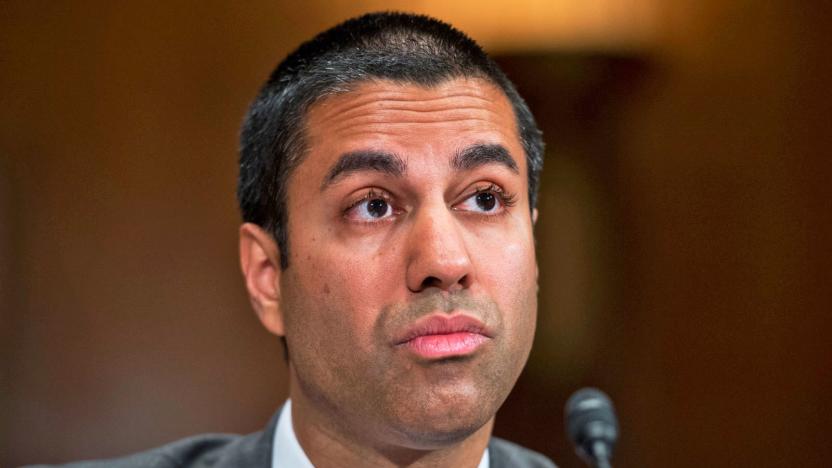
Senators make last ditch effort to halt the FCC's net neutrality vote
The FCC is set to vote this Thursday on its proposal to remove net neutrality protections put in place in 2015 and while it's all but certain that the commission will vote in favor of the proposal, some still haven't given up trying to convince the commissioners to change their minds. The Hill reports today that 39 senators signed a letter addressed to FCC Chairman Ajit Pai requesting that he reconsider. "We write to urge you to abandon your reckless plan to radically alter the free and open internet as we know it," the Democrats wrote. "Your proposed action will amount to the largest abdication of the Federal Communications Commission's statutory responsibilities in history."
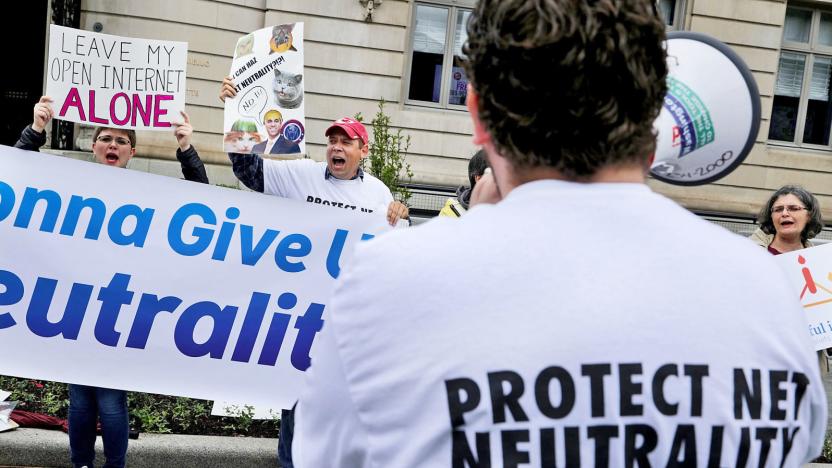
The Internet Association asks FCC to delay its net neutrality vote
The Internet Association, whose members include Amazon, Netflix and Uber, sent a letter to the FCC today requesting that the commission either delay its upcoming vote on the proposal to remove net neutrality protections or vote against it, Reuters reports. "This draft order ignores the wishes of tens of millions of Americans who, like us, have voiced their support for the 2015 Open Internet Order," Internet Association CEO Michael Beckerman said in the letter. "IA and its members will continue our fight to preserve the 2015 Order and its strong, enforceable net neutrality protections."

EFF tool tells your members of Congress to fight for net neutrality
The FCC may be bent on killing net neutrality, but that doesn't mean you have to stay silent or offer mostly symbolic protests. The Electronic Frontier Foundation has created a web tool that makes it easy to ask your members of Congress to fight for an open internet. All you have to do us plug in your address, personalize your message (if you like) and hit "submit" -- your representatives and senators will receive your concerns and hopefully do something about it.
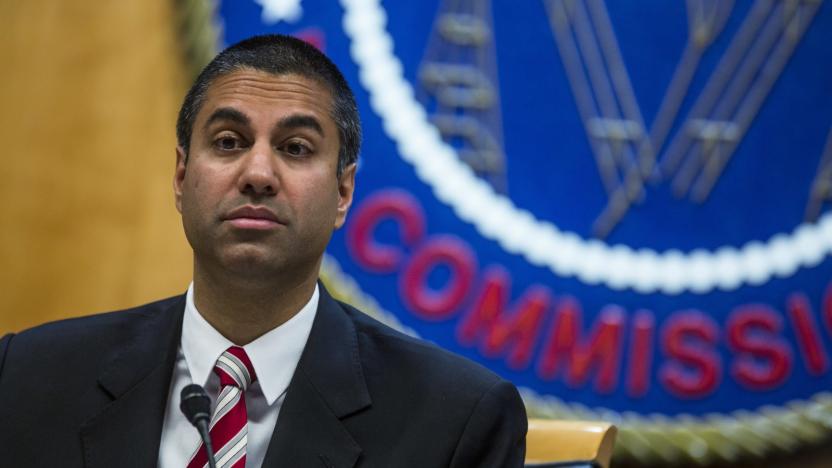
What to expect from the FCC's net neutrality proposal
Today, senior FCC officials outlined the net neutrality draft proposal that will be released by the commission tomorrow. As has been discussed for months, if the new proposal is accepted by the FCC, broadband internet service will cease being subjected to Title II regulations and will return to an information service classification rather than a telecommunications one. Additionally, the order would fully repeal the FCC regulations allowed by the internet conduct standard put in place in 2015, which let the commission investigate practices like zero-rating schemes -- AT&T's Sponsored Data and Verizon's FreeBee Data 360 setups, for example -- and would get rid of the bright-line rules that prevented internet service providers (ISP) from blocking, throttling or fast-laning certain content.

Judge rules Canada's de-indexing order won't apply to Google in the US
For the past few years, Google has been the subject of a legal debate in Canada, one aiming to determine whether Canadian court rulings regarding the internet are applicable just in Canada or should be enforceable worldwide owing to the borderless nature of the web. In June, the Canadian Supreme Court decided that they should be enforced globally, but a US federal judge has now weighed in, and at least in this particular case, the Canadian ruling won't apply in the US.

Digital rights groups speak out against EU plan to scan online content
For the past few years, the European Union has been developing reforms that would turn Europe into a Digital Single Market. Under such a structure, anyone in Europe would be able to buy goods and services online from any of the EU member states, not just where they currently happen to be, and services like Netflix would be the same in each country, though that piece would be quite a bit harder to implement. However, there's another part of this conversation that has drawn a fair amount of backlash and this week led major rights groups to pen an opposition letter to the EU.
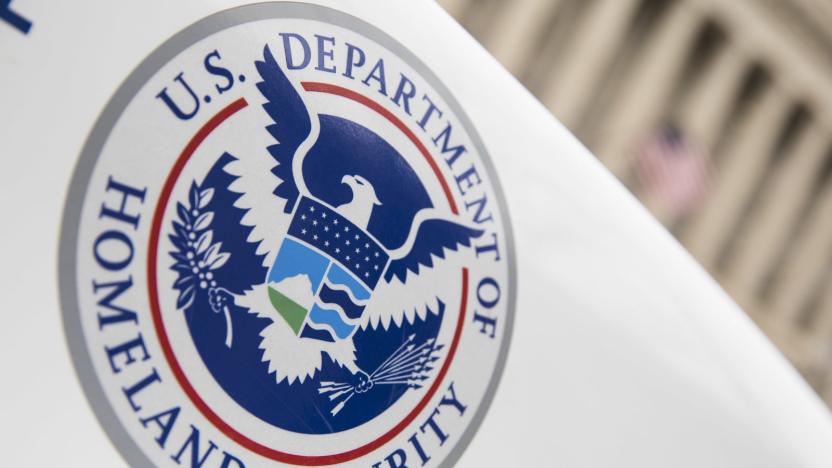
The DHS plans to monitor immigrants’ social media accounts
The Department of Homeland Security (DHS) recently posted a new rule in the Federal Register set to go into effect next month. The update is largely to note that certain government electronic documents are also part of immigrants' official records as the DHS "moves to conducting more immigrant actions in an electronic environment." However, the DHS is also adding new categories to official records including "social media handles, aliases, associated identifiable information, and search results." And the collection of social media information isn't limited to new immigrants but will apply to all immigrants including permanent residents and naturalized citizens.

DHS faces lawsuit over phone and laptop border searches
The number of electronic devices seized and searched at customs sharply increased in 2016 and has continued to rise this year. A number of groups and politicians have spoken out against the growing practice and now the ACLU and the Electronic Frontier Foundation (EFF) have filed a lawsuit against the Department of Homeland Security on behalf of 11 individuals who had their devices searched without a warrant.

Neo-Nazi site Stormfront has been temporarily taken down
The post-Charlottesville removal of neo-Nazi content from various web sources continues to power on as the long-standing website Stormfront has, for now, been taken down. A Whois search shows that Web.com domain provider Network Solutions LLC has put a hold on the website and as the Knoxville News Sentinel reports, the hold prohibits the site from being updated, transferred or deleted. If the domain provider decides to delete Stormfront, any subsequent version hosted elsewhere would have to be recreated from scratch.

Privacy group says Washington cyberbullying law is censoring instead
Anti-cyberbullying laws are noble, but attempting to punish online speech is tough. Digital rights group Electronic Frontier Foundation (EFF) claimed that Washington state's anti-cyberbullying legislation goes too far -- and ends up censoring speech instead.

How an obscure rule lets law enforcement search any computer
With today's amendments to Rule 41, the statute that regulates legal search and seizure, the US Department of Justice has a new weapon to fight cyber crime -- but it's a double-edged sword. The changes expand the FBI's ability to search multiple computers, phones and other devices across the country, and even overseas, on a single warrant. In an increasingly connected world, amending the rules is both necessary for law enforcement agencies and deeply concerning for digital privacy advocates. And for everyday citizens, it's a little bit of both.

EFF sues US government to void 'onerous' copyright rules
The Electronic Frontier Foundation (EFF) has sued the US government in an attempt to overturn a part of the DMCA that it says violates the First Amendment. The provisions, contained in Section 1201, restrict user access to purchased content including videos, music and the software used in cars, appliances and devices. "The First Amendment preserves our right to ... research and talk about the computer code that controls so much of our world," says EFF Staff Attorney Kit Walsh. "Section 1201 threatens ordinary people with financial ruin or even a prison sentence for exercising those freedoms."

FBI is building a tattoo tracking AI to identify criminals
AI-powered image recognition is all the rage these days, but it could have a sinister side too. Since 2014, the National Institute of Standards and Technology started working with the FBI to develop better automated tattoo recognition tech, according to a study by the Electronic Frontier Foundation. The idea here is to basically develop profiles of people based on their body art. The EFF says that because tattoos are a form of speech, "any attempt to identify, profile, sort or link people based on their ink raises significant First Amendment questions."






